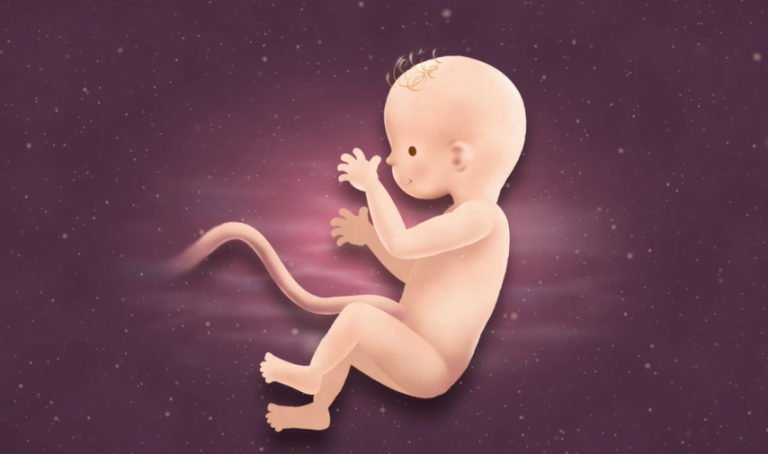Welcome to the beginning of your incredible journey into motherhood! The first two weeks of pregnancy are a truly special time, even though you may not yet be experiencing typical pregnancy symptoms. During this period, remarkable changes are taking place within your body as a new life begins to form. In this article, we’ll delve into what’s happening during these early weeks, what you can expect, and how you can lay the foundation for a healthy and happy pregnancy.
Your Baby at 1-2 Weeks
During the first 1-2 weeks of pregnancy, your baby is just beginning to take shape, even though you may not feel or notice it. The conception process and initial development include:
- Fertilisation: Conception usually occurs in the fallopian tube, and a sperm cell successfully fertilises an egg, forming a zygote.
- Cell Division: The zygote starts dividing rapidly, forming a structure called a blastocyst. The blastocyst comprises two primary cell types: the inner cell mass, which will develop into the embryo, and the outer layer, which will become the placenta.
- Journey to the Uterus: The blastocyst begins its journey to the uterus, where it will eventually implant itself into the uterine lining.
- Implantation: The process of implantation begins around 6-10 days after fertilisation. The blastocyst attaches itself to the uterine lining, marking the critical connection between the embryo and the mother’s body.
The Size of Your Baby
At this stage, the baby is incredibly tiny, consisting of only a few cells. It’s smaller than a grain of sand, but it represents the very beginning of life.
Pregnancy Symptoms at 1-2 Weeks
At 1-2 weeks of pregnancy, it’s important to understand that you may not experience noticeable symptoms. However, some subtle signs may indicate that pregnancy is underway:
- Implantation Bleeding: You might experience light spotting or implantation bleeding when the fertilised egg attaches to the uterine lining. This can be mistaken for a very light period.
- Breast Changes: Hormonal changes can lead to increased sensitivity and fullness in the breasts.
- Mild Cramping: You might report mild uterine cramping, similar to menstrual cramps, as the embryo implants.
- Changes in Basal Body Temperature: If you’re tracking your basal body temperature, you might notice a sustained increase, indicating pregnancy.
- Heightened Sense of Smell: Hormonal changes can make some women more sensitive to odors.
It’s important to remember that these symptoms are subtle, and many women may not notice any changes during these early weeks. Most pregnancy tests will not provide accurate results until around the time of a missed period, which typically occurs at 4 weeks pregnant.
What You Need to Know at Weeks 1-2 of Pregnancy
During the very early stages of pregnancy, there are several essential things to keep in mind:
- Conception Date: The week of pregnancy is calculated from the first day of your last menstrual period (LMP). This method is used because most women can more accurately recall the date of their last period than the exact moment of conception. So, at 1-2 weeks pregnant, you are about 1-2 weeks past conception.
- Monitoring Ovulation: Understanding your ovulation period is crucial when trying to conceive. Ovulation typically occurs around the middle of your menstrual cycle, and it marks the release of a mature egg from one of your ovaries. This is the prime time for fertilisation.
- Early Prenatal Care: It’s never too early to start thinking about prenatal care. Begin by choosing a healthcare provider, such as an obstetrician, midwife, or family doctor, who will guide you through your pregnancy journey.
Your Pregnancy To-Do List at Weeks 1-2
Even though your baby is just beginning to develop, there are still important steps you can take to ensure a healthy pregnancy:
- Choose a Healthcare Provider: You should research and select a healthcare provider who will be a supportive and trusted partner throughout your pregnancy journey.
- Begin Prenatal Vitamins: You should start taking prenatal vitamins, which typically include essential nutrients like folic acid, iron, and calcium. Consult your healthcare provider for specific recommendations.
- Avoid Harmful Substances: You should eliminate smoking, alcohol, and recreational drugs from your life. These substances can harm your baby’s development.
- Educate Yourself: You should take time to read and educate yourself about pregnancy and childbirth. Understanding the changes your body is going through and what to expect during pregnancy can help ease any anxiety or concerns.
To conlude, the first two weeks of pregnancy are a time of incredible potential as your baby begins to form. Although you might not yet be experiencing noticeable symptoms, the journey has already begun. By understanding the early stages of pregnancy, taking prenatal care seriously, and making healthy choices, you’re laying a solid foundation for the remarkable journey that lies ahead. Each pregnancy is a unique and beautiful experience, so embrace it and cherish the moments as your baby continues to grow.
If you have any questions or would like to share your thoughts and experiences, please don’t hesitate to leave a comment. We look forward to seeing you next week as we continue this amazing journey together!








Is it normal to loose appetite in the first two weeks?
In the first three months, it is common to experience severe nausea, food refusal, and loss of appetite. Don’t worry – especially in the first trimester of pregnancy, these symptoms are normal. However, these alone do not directly indicate pregnancy. For accurate information, you should consult a doctor.